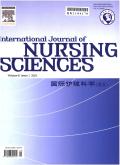Navigating the integration of artificial intelligence in Nursing: Opportunities, challenges, and strategic actions
IF 3.1
3区 医学
Q1 NURSING
引用次数: 0
Abstract
The advent of artificial intelligence (AI) in recent years has brought about transformative changes across various sectors, including healthcare. In nursing practice, education, and research, AI has the potential to revolutionize traditional methodologies, enhance learning experiences, and improve patient outcomes. Integrating AI tools and techniques can provide clinicians with smarter clinical solutions and nursing students with more robust and interactive learning environments, while also advancing research capabilities in the field. Despite the promising prospects, the incorporation of AI into nursing practice, education, and research presents several challenges. Firstly, there is a concern about the potential displacement of human roles in nursing due to automation, which may affect the human-centric nature of nursing care. Secondly, there are issues related to the lag in AI competency among nurses. Many current nursing curricula do not include comprehensive AI training, leading to a lack of preparedness in utilizing these technologies effectively. Lastly, the ethical implications of AI in healthcare, such as data privacy, patient consent, and the potential for biased algorithms, need to be meticulously addressed. To harness the full potential of AI in nursing practice, education, and research, several strategic actions including reinvesting in humanistic practice, revising core competencies and curriculum, and developing new ethical guidelines.
引导人工智能在护理中的整合:机遇、挑战和战略行动
近年来,人工智能(AI)的出现给包括医疗保健在内的各个行业带来了革命性的变化。在护理实践、教育和研究中,人工智能有可能彻底改变传统的方法,增强学习经验,改善患者的治疗效果。集成人工智能工具和技术可以为临床医生提供更智能的临床解决方案,为护理学生提供更强大和互动的学习环境,同时还可以提高该领域的研究能力。尽管前景光明,但将人工智能纳入护理实践、教育和研究仍存在一些挑战。首先,人们担心自动化可能会取代人类在护理中的角色,这可能会影响护理以人为中心的本质。其次,护士的人工智能能力存在滞后问题。目前许多护理课程不包括全面的人工智能培训,导致在有效利用这些技术方面缺乏准备。最后,人工智能在医疗保健领域的伦理影响,如数据隐私、患者同意和有偏见的算法的可能性,需要仔细解决。为了充分利用人工智能在护理实践、教育和研究中的潜力,采取了几项战略行动,包括重新投资人文实践、修订核心能力和课程,以及制定新的道德准则。
本文章由计算机程序翻译,如有差异,请以英文原文为准。
求助全文
约1分钟内获得全文
求助全文
来源期刊

International Journal of Nursing Sciences
Nursing-Nursing (all)
CiteScore
6.10
自引率
2.60%
发文量
408
审稿时长
25 days
期刊介绍:
This journal aims to promote excellence in nursing and health care through the dissemination of the latest, evidence-based, peer-reviewed clinical information and original research, providing an international platform for exchanging knowledge, research findings and nursing practice experience. This journal covers a wide range of nursing topics such as advanced nursing practice, bio-psychosocial issues related to health, cultural perspectives, lifestyle change as a component of health promotion, chronic disease, including end-of-life care, family care giving. IJNSS publishes four issues per year in Jan/Apr/Jul/Oct. IJNSS intended readership includes practicing nurses in all spheres and at all levels who are committed to advancing practice and professional development on the basis of new knowledge and evidence; managers and senior members of the nursing; nurse educators and nursing students etc. IJNSS seeks to enrich insight into clinical need and the implications for nursing intervention and models of service delivery. Contributions are welcomed from other health professions on issues that have a direct impact on nursing practice.
 求助内容:
求助内容: 应助结果提醒方式:
应助结果提醒方式:


